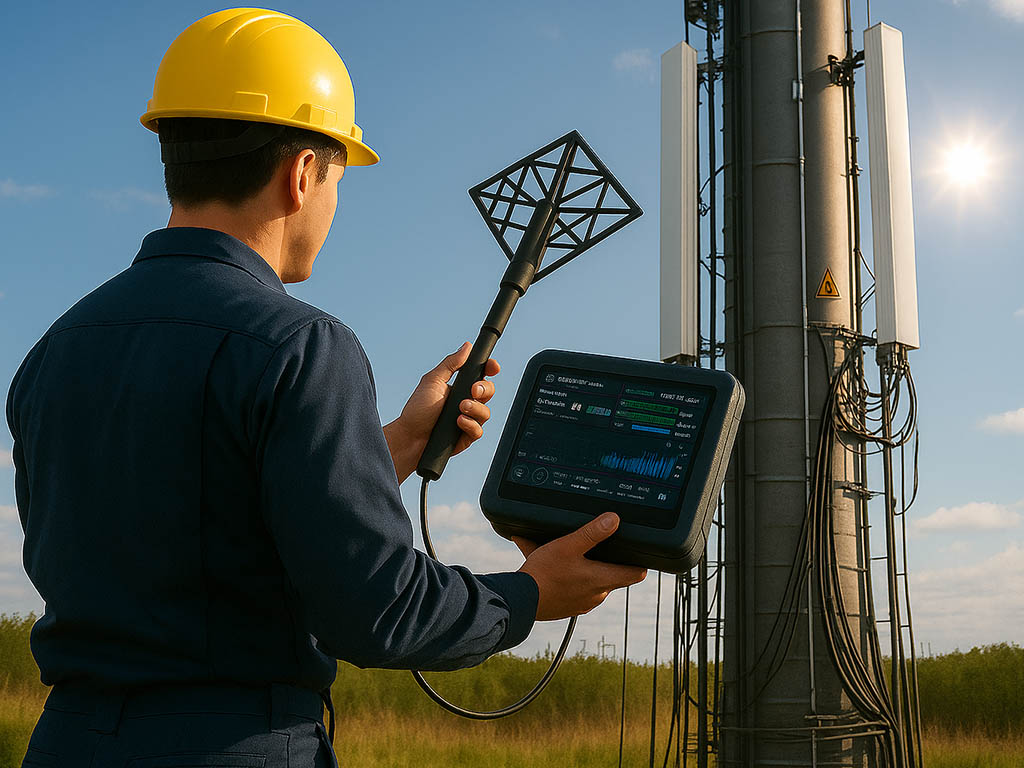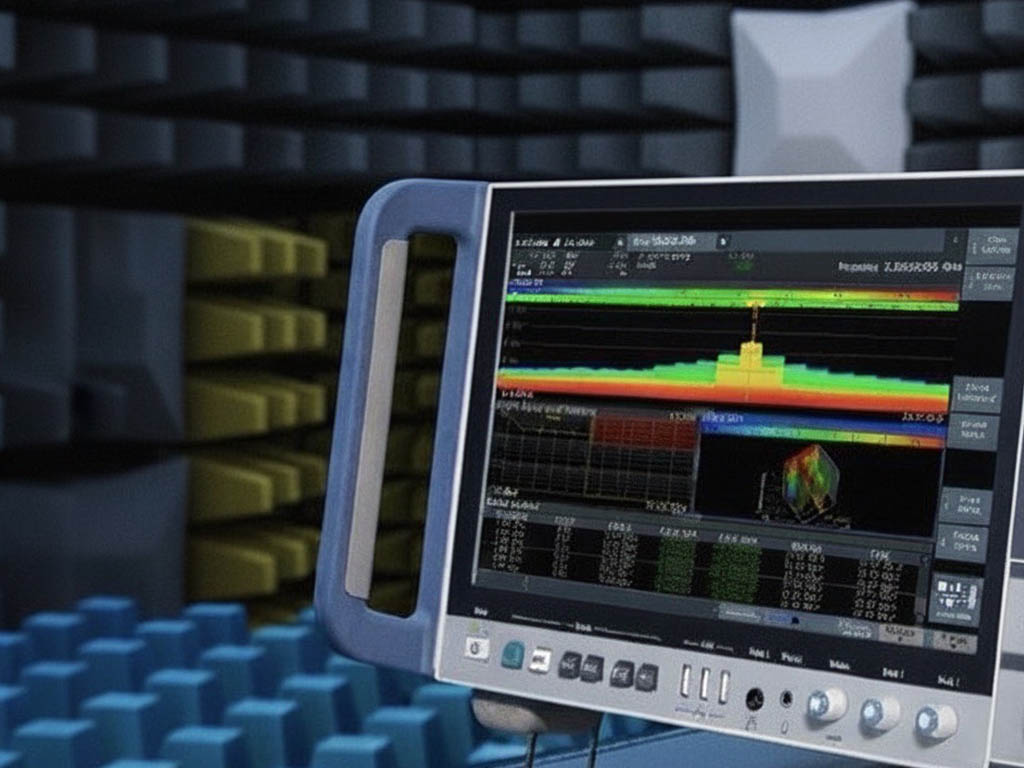Field Measurements (EMF) and Safety of Human Exposure to Radio Frequency Electromagnetic Energy
We support organizations in measuring electric and magnetic fields in hospitals, schools, factories, and laboratories to verify compliance with international standards for human exposure to Radio Frequency Electromagnetic Energy.
With the rapid growth of wireless technologies such as Bluetooth, Wi-Fi, and cellular towers, electromagnetic fields (EMFs) have become an unavoidable part of modern life. Ensuring compliance with exposure limits is now essential—not only from a technological perspective, but also to protect health and safety.
International regulations define strict exposure thresholds to safeguard both humans and animals from the potential risks of EMFs.
Employers are required to protect their staff by conducting workplace field measurements and documenting compliance.
Regulatory authorities must oversee public spaces such as schools, offices, and parks to ensure exposure remains within safe limits and public health is protected.

Some scientific studies show that exposure to electromagnetic fields may affect different population groups:
Nervous system sensitivity: Increased vulnerability due to rapid brain development and thinner skull structures.
Sleep & focus: Reported cases of insomnia, headaches, and reduced concentration with prolonged exposure.
Cognition: Concerns over potential effects on memory and learning.
Fetal development: High exposure levels may increase the risk of miscarriage or congenital conditions.
Brain metabolism: EMFs may influence biological processes in the brain, indirectly impacting pregnancy outcomes.
Chronic fatigue: Persistent tiredness and low energy without clear medical causes.
Headaches & nausea: Linked to prolonged mobile phone or device usage.
Electromagnetic hypersensitivity: Some individuals report stress, sleep disturbances, or irregular heartbeat when exposed

Consulting & Support for Electromagnetic Compatibility (EMC) Services
We provide expert consulting and technical support for:
EMC compliance of electrical, medical, and wireless devices according to international standards.
Planning and establishing EMC laboratories for medical equipment, electrical devices, and electric vehicle components.
In today’s interconnected world, electromagnetic compatibility is critical. EMC ensures that electronic devices:
Function reliably in their intended environments.
Do not generate harmful electromagnetic interference (EMI) that disrupts or damages other systems.
Continue operating effectively even in the presence of strong external electromagnetic fields.

Benefits of EMC Testing
Working in compliance with international EMC standards provides significant advantages:
Reliable device performance in real-world conditions.
Prevention of interference with surrounding systems.
Enhanced product quality, safety, and reliability.
Increased customer confidence and stronger brand reputation.
Reduced costs from recalls, malfunctions, or regulatory failures.
Electromagnetic compatibility (EMC) is a critical aspect of modern product design, ensuring safe and reliable operation of electronic devices. In today’s technology-driven world, EMC is not optional but essential for seamless functionality. Integrating EMC compliance into development helps protect users and meet international standards. Ultimately, it supports product reliability, efficiency, and long-term success.